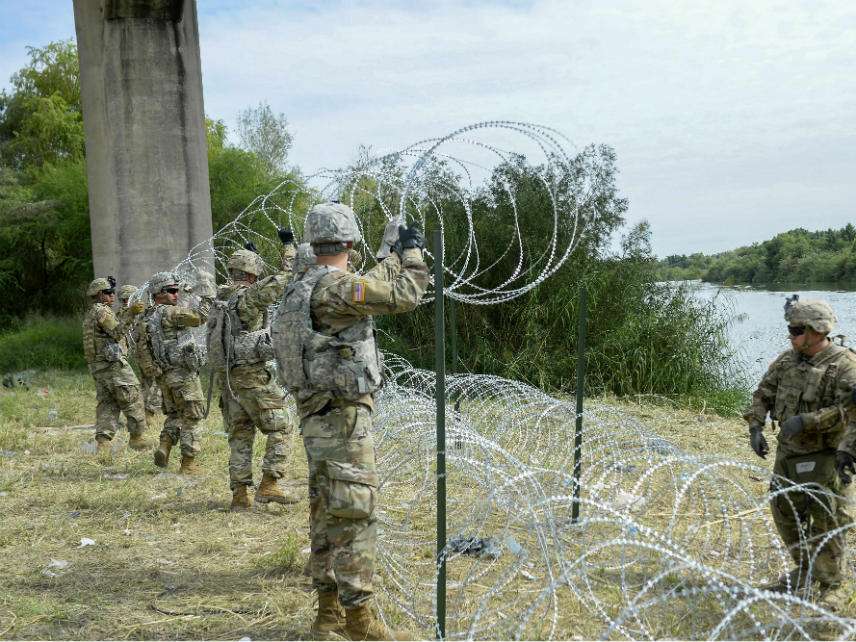Pentagon Reportedly Admits Migrant Caravan Doesn't Pose Threat, Might Still Spend $220 Million to Stop It
Trump can probably find someone better to set up barbed wire fences on the border.

Deploying thousands of American soldiers to the southern border because of a caravan of Central American migrants: It's an outrageously expensive solution to a problem that doesn't even exist.
The military said it was sending more than 5,000 troops to the border last week in anticipation of the caravan's arrival. That number now seems to have gone up to 7,000, and President Donald Trump has said he could deploy as many as 15,000.
All those troops will come at a high cost: $220 million, according to CNBC, which cites two anonymous defense officials. And it's not exactly money well spent. CNBC reports:
A Pentagon risk assessment found that the caravan did not pose a threat to the United States, according to a person with direct knowledge of U.S. intelligence. This person also said that the caravan would take about a month and a half to get to the U.S. border.
CNBC's report was published two days after The Washington Post claimed the deployment could cost more than $200 million, depending on how long they stay and whether more are sent.
So what are the troops up against? There are actually up to four migrant caravans making their way north. The first, which originated in Guatemala last month, used to have about 7,000 people; it has dissipated considerably since then, and now appears to have somewhere between 3,000 and 4,000.
Unclassified U.S. military documents obtained by Newsweek and published this past Thursday estimate that of roughly 7,000 migrants heading toward the U.S. border as of October 25 , just 20 percent "will make [the] entire journey." As the Post points out, this would equate to five U.S. troops for each migrant who makes it to the border.
The most likely course of action, the documents say, is that the "caravan dwindles as it nears" the border with "limited" exploitation from transnational criminal organizations. However, there might be a "balloon effect on smuggling."
In the most dangerous course of action, the assessment says, the "caravan grows markedly" and is exploited by terrorists. And if those transnational criminal groups are "upset" by the U.S. military's involvement, there could be an increase in "cross border engagements."
But even this worst-case scenario doesn't justify Trump's obsession with the caravan. The president has previously claimed—without evidence—that "criminals and unknown Middle Easterners are mixed in" with the other migrants. He has also, as Reason's Scott Shackford notes, released a "grossly misleading ad about immigration" in a clear attempt "to paint the migrants in the caravan as invaders, terrorists, violent threats to our civil life that must be stopped before they disrupt society."
Trump is trying to justify his deployment of troops to the border by overplaying the threat posed by the caravan. But even those who do make it to the border probably aren't criminals. Immigrants—including those in the country illegally—are actually less likely to commit crimes than American citizens are. Are they really a reason to send thousands of troops to set up some barbed wire?


Show Comments (55)